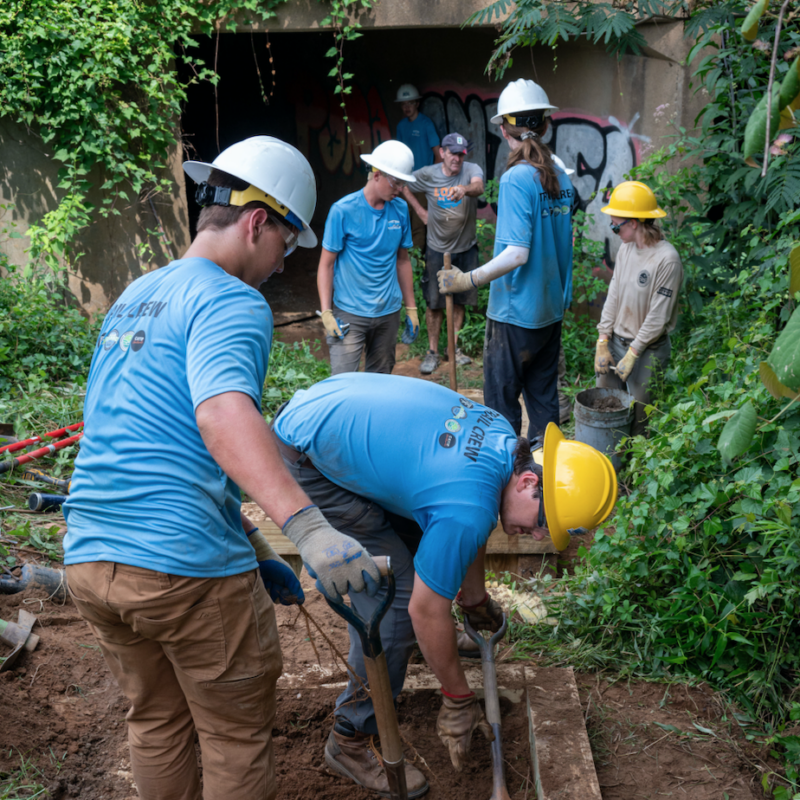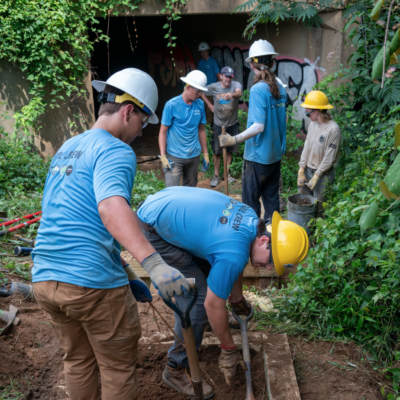A group of local police officers, guns pointed, raided a migrant home in search of a homicide suspect. After securing the house, they entered the bathroom. An officer threw back the shower curtain, found a man curled in hiding, and said, “Feliz Navidad!” It was the only Spanish that he knew.
Lt. Todd Hopwood, spokesman of the Albemarle County Police Department, used that story during a panel discussion last week to underscore the language barrier between local police and Latinos. Creciendo Juntos, a group focused on the Latino community in Charlottesville, Albemarle and surrounding counties, organized the panel to explore and improve the relationship between the two groups.
|
“We can’t classify everybody as Mexicans,” said Lt. Todd Hopwood, speaking about police perceptions of Latinos at a panel last week. |
“Those are funny little stories of how it used to be, and we probably have still some of those funny stories happening now,” said Hopwood, who has worked with the department since 1991. These, he said, were the first encountered between law enforcement and the Latino population.
Hopwood, whose grandmother was from Puerto Rico, has been attentive to the concerns of Latinos since he entered the force and attempted to address misconceptions. “We can’t classify everybody as Mexicans,” he said. “Those walls, that ideology and, let’s face it, that ignorance has got to be broken down and I have been preaching this to my bosses for years,” he said.
While he understands that most Latinos are fearful of the police because of negative experiences with an anti-immigrant ideology, he assured the audience that “we are just like any other profession. …In Albemarle County, for the most part, we are a very professional organization and the majority of our folks are good eggs. But I am sure that some of you have probably run into a bad egg.”
Contrary to popular belief, Hopwood said, the department cannot enforce federal immigration laws. It will look into a person’s immigration status, and alert the federal government only if that person has outstanding warrants.
The language barrier, one aspect that still troubles some residents, has been partially addressed: The department has hired three bilingual officers and offers Spanish language classes.
But for Veronica Vargas Piña, the inability to communicate is at the heart of the problem. “Some people have difficulty because they don’t speak the language and they get treated differently. Sometimes if you are Spanish, they’ll pull you over for no reason,” she says.
Linda Hemby of county social services said that in order to improve the relationship between the two entities, service providers need to also address and educate their constituents on misconceptions regarding police.
C-VILLE welcomes news tips from readers. Send them to news@c-ville.com.






